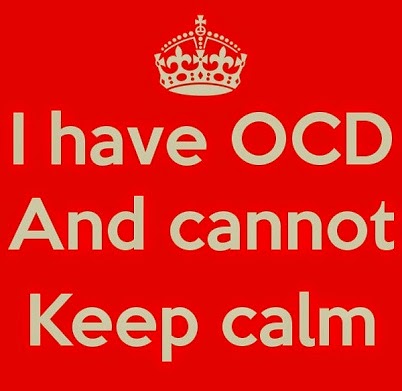Obsessive Compulsive Disorder (OCD) and Attention Deficit Hyperactivity Disorder (ADHD) are both neuropsychological disorders that might in some cases overlap with each other.
The similarities between the two disorders makes it somewhat hard to distinguish one from the other, since both disorders are related to the same part of the brain which is called the prefrontal cortex.
Some suggest there are more differences than similarities between the two while others claim differently but at the end, the two disorders are in one way or the other quite related.
OCD is a disease that results from an overactive prefrontal cortex, whereas ADHD results from an underactive one.
Basically the two disorders are fundamentally different in their mechanisms and their patterns of brain activities, one is controlled by compulsive behaviors (OCD) and the other by impulsive ones (ADD/ADHD), however despite the difference they both result in some behavioral similarities that makes the diagnosis tricky.
The cognitive outcome of both diseases would include:
1. Memory problems.
2. Difficulty planning.
3. Difficulty making decisions.
4. Often switching from one task to another.
5. Difficulties with organization.
6. Difficulties getting their emotions and impulses in order and under control.
All of such symptoms are behaviors that might make the diagnosis confusing.
OCD and ADHD however might in some cases co-exist in some individuals at the same time, which makes the course of treatment very critical and very important.
Some ADHD medications might actually exacerbate the symptoms of OCD which makes it a high priority to be able to differentiate correctly between the two.
And here are the differences between OCD and ADHD:
Symptoms of OCD:
. Fear of contamination, of germs and of getting sick.
. Repeating certain behaviors or words in a specific pattern.
. Believing and focusing on superstitions and luck.
. excessive arranging of items in a certain order.
. Cleaning too much.
. Double checking too much on locks and items.
. Continuous checking to make sure loved ones are OK.
. Getting engaged with many rituals.
. Doing meaningless things to relieve anxiety.
Symptoms of ADHD:
. Being easily distracted.
. Difficulty concentrating and paying attention.
. Poor memory and bad listening skills specially to details.
. Difficulties with organization.
. Easily losing items or forgetting where they’d put them.
. Mood swings.
. Saying inappropriate things at the wrong time.
. Talking non-stop.
. Trying to do many things at the same time.
The differences between the two disorders are obvious, and despite the difficulties some physicians have to distinguish each one from the other, medical assistance is a must if some of the symptoms are present and a disorder is suspected.
Read also about:
OCD Depression




